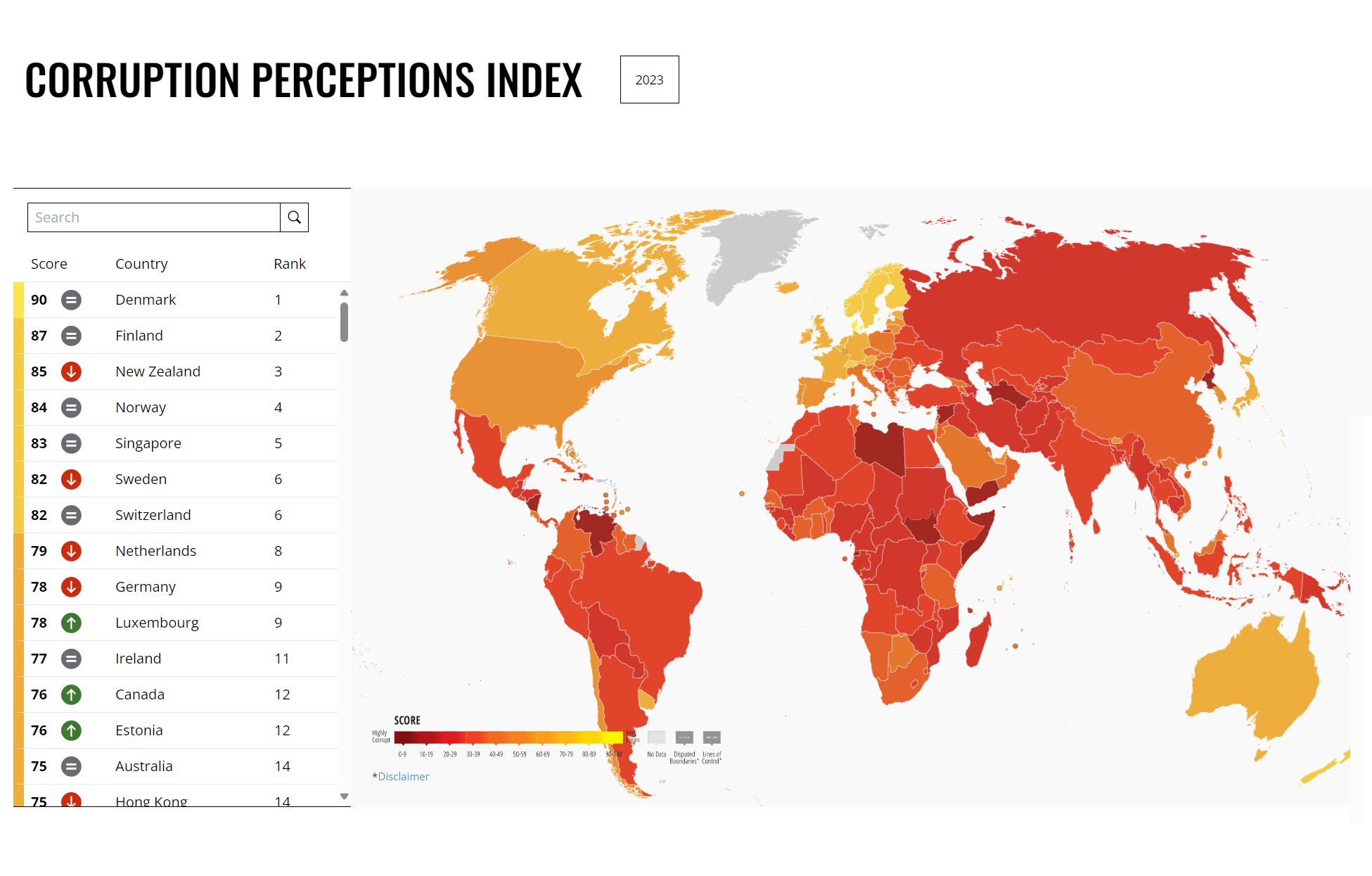Up until the mid 2010s, the general trend around the world was that corruption had started to decline somewhat, which led many to assume that it would soon become a thing of the past. In spite of the fact that this is the case, a general decline in law and order that has been going on since 2016 has led to corruption making a comeback, and it might even get far worse than might have been the case otherwise.
With all of that having been said and now out of the way, it is important to note that 23 countries have seen their corruption levels become the worst they’ve ever been in the past 30 years or so. This data is coming out of Transparency International, and it also points to a rise in authoritarianism all around the world. However, it bears mentioning that democratic countries aren’t immune to this backsliding either.
The UK, Sweden, the Netherlands and Iceland are all democratic countries, but they all hit their lowest scores on the index since it first started being recorded. Even so, Netherlands remained in the top ten, as did Sweden, where they were joined by the likes of Norway, Germany, Luxembourg, Singapore and Switzerland with all things having been considered and taken into account.
On the other end of the spectrum, Somalia had the lowest score of all with 11 points out of 100. Venezuela, Syria and South Sudan were tied for second worst place with a score of 13, followed by Yemen with 16, and then North Korea, Nicaragua, Haiti and Equatorial Guinea with 17 points.
The US stood at 24th place with a score of 69, and the global average currently sits at around 43 points. This is the same average that we have seen for the past 12 years now, with two out of three countries scoring under 50 points.
On the other end of the spectrum, Somalia had the lowest score of all with 11 points out of 100. Venezuela, Syria and South Sudan were tied for second worst place with a score of 13, followed by Yemen with 16, and then North Korea, Nicaragua, Haiti and Equatorial Guinea with 17 points.
The US stood at 24th place with a score of 69, and the global average currently sits at around 43 points. This is the same average that we have seen for the past 12 years now, with two out of three countries scoring under 50 points.
A weak judicial system in countries like Poland and Hungary contributed to low scores of 54 and 42 respectively, whereas Russia saw its lowest score yet with just 26. Meanwhile, Ukraine provided some hope by continuing its 11 year growth streak with 36 points, despite Russia barging in through its door.




No comments:
Post a Comment